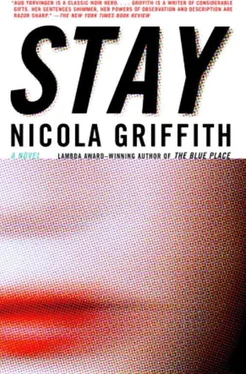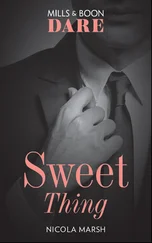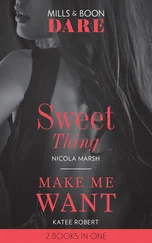After I’d changed I didn’t pause to talk to the concierge or to get a map but walked back out again, to the subway at Fifth and Fifty-third, and down into the stink of diesel fume and stale urine to catch the F train. If I could get to Washington Square Park, all I had to do was walk west to find Seventh Avenue. On the platform I tried to shut down my senses, close out the noise, the carbon-slippery air, the three middle-aged businessmen in expensive coats talking in tight voices about some deal that had gone south. A redheaded boy on crutches who couldn’t have been more than fifteen stood next to the men, whose discussion had now escalated to the kind of argument people have when they’re looking for someone else to blame. The boy stood too close. Any of those men could lash out in frustration and the boy would tumble off the platform onto enough electricity to hard-boil his eyes in four seconds. Anyone could push any of us off. I looked behind me. No one. I stepped back several feet and tried to breathe normally. There could have been someone there. I should not have had to look. I should have known. Be present, stay alert: the first rule of self-defense. But then I wouldn’t be able to shut out the noise and stink and tension around me.
The train was not full. No one paid attention to anyone else as we racketed past signs for Rockefeller Center, Forty-second Street, Herald Square. The same tunnels, different signs. It could have been an episode of The Twilight Zone: dead people traveling in Charon’s twenty-first-century barge. When I got off at Fourth Street, the steps were too steep, and the higher I climbed the less oxygen I seemed able to pull into my lungs, but at the top, outside, the sun still shone. Again, I had that brief sense of vertigo. I walked without thinking, without direction, just to be walking, to be not trapped among the women with cross-slung purses and men with messenger bags who radiated aggression and fear, and eventually the press thinned and I could breathe, I could begin to separate out different packets of information—a smell from a shout from a flash of color—and I found I was heading south on La Guardia Place. At the next cross street, Bleecker, I turned right and headed west.
I passed the Bitter End, “New York’s Oldest Rock Club,” and two or three blocks later the Greenwich Village Funeral Home. Old rock stars never die. Right again, north on Sixth, because it was wider, and there was less information per square foot, but before I could head north and west on West Fourth I was caught by the flash and thud of a ball and the slip and play of tree shadow on the sweat-sheened arms of two men rising to the basket, and I had to stop because the information made no sense: taxi honk, thump of ball, back-and-forth flash of green, then white, as money and drugs change hands, fence around a paved court, crunch of fallen leaves, screech of tire on asphalt. And then it was clear: pickup basketball on an urban court around which rip-off-the-tourist drug deals met gentrified neighborhood in early autumn sunshine. I leaned on the wire fence around the court, let it dig into my back, breathed until my heart slowed. I knew where I was. I started to walk. I knew why I was there. I swang my arms. I knew where I was going.
My arms would not swing properly. The tension in my shoulders would not let go.
The last time I had had to consciously relax as I walked a city street was nearly eleven years ago, during my first weeks on patrol with the Atlanta PD. Then, I had reared at every shadow, flooded with adrenaline at every human voice, wondering if this was the situation that would get away from me, if that might be the man who would be bigger or faster or stronger. I had learned after a while to recalibrate my sense settings, to distinguish the shout from a bar doorway that meant I am about to shove this shank in your kidney from the one that said Damn, I feel good today!, to differentiate the flash of movement on a sunlit downtown street that signaled the sudden attack from the one that meant someone had just realized he was late for his meeting and had to run. You had to trust your unconscious mind to understand the whole picture; it can process faster than thought. It will let you know if the charging man has bared teeth and mismatched socks, or whether he is wearing a silk and cashmere suit. It will add that information to whether he is growling or merely cursing his own idiocy under his breath, and whether his smell is Mogen David or something by Calvin Klein, and then flash a red or green light to your adrenal glands, all between one heartbeat and the next. If you adjust your conscious filters to the appropriate setting, you can relax and let your subconscious take care of things. It’s something I used to be good at.
I kept walking north and west on West Fourth, swinging my arms, telling myself I was relaxed. If you walk as though your mind is easy, your mind believes your body and becomes easy. If your mind is easy, your body believes it and becomes easy: a basic feedback loop. I half closed my eyes, ignored the noise around me, imagined my wrists loose and my fingers relaxed. Breathe, stride, swing. By the time I turned north on Seventh I didn’t have to think about it anymore.
The ground floor of 95 Seventh Avenue South turned out to be a pizzeria, but there was a doorway to the left, and three neat black bell pushes and an intercom grille. No mailboxes. I took thin leather gloves from my jacket pocket and put them on. I tried the door: locked. None of the buttons were identified by apartment number, but two of them had names, Jhaing and Donato. I pushed each button in turn. The grille crackled.
“Yeah?” A man’s voice, young.
“Package,” I said.
“Uh, so you could put it in the mailbox.”
“Won’t fit the mailbox.”
“Then leave it in the lobby. Jeez…”
New York, I reminded myself. “I can’t get in to get to the lobby, asshole, because I’m not from the goddamn post office, okay? If you don’t want the package, then fuck you and have a nice day.”
“Whoa! Okay, okay. Jeez. You’d think—” Whatever I was supposed to think was drowned out by the buzzer and I pushed the door open. The mailboxes were on the right, three of them, and all were labeled: Apt. A: Jhiang, Apt. B: Dutourd, Apt. C: Donato, Karp, Foster. They were locked.
The stairs were made of a glittery stone composite and didn’t creak. I stopped halfway up the first flight and sniffed: something summery and old-fashioned. Lavender. My face tightened as adrenaline nudged up my blood pressure: this was not the kind of place I would expect to find Tammy, or the darling of retail sales, Mr. Karp.
The first floor was carpeted in neutral beige. The green-painted door said it was Apt. A. The second floor was a well-finished hardwood, with a cheerful rag rug and a vase of dried flowers on a Chippendale hall table. Probably the source of the lavender scent. I kept going, and hadn’t quite reached the third floor when a door banged open above me and a slightly built man hurried along the hallway to the stairs. I went perfectly still. He literally jumped when he saw me.
“Who the fuck are you?”
Early twenties, black hair, black eyes, left ear pierced twice, and the kind of clothes that didn’t fit with the probable rent of his apartment.
“I said, who the—”
My heart was pumping smoothly. “I’m looking for Tammy Foster.”
“She doesn’t live here.”
“I’m still looking for her.”
He tensed and backed up. “You the police?”
“No.”
“My mom send you?”
“No.” Oxygen-rich blood coursed through dilated blood vessels. “Where is Tammy?”
He frowned but his shoulders came down a fraction. “Why do you care?”
My muscles were relaxed and my voice, when I spoke, sounded almost gentle. “I don’t care, particularly, but you will tell me—”
Читать дальше












